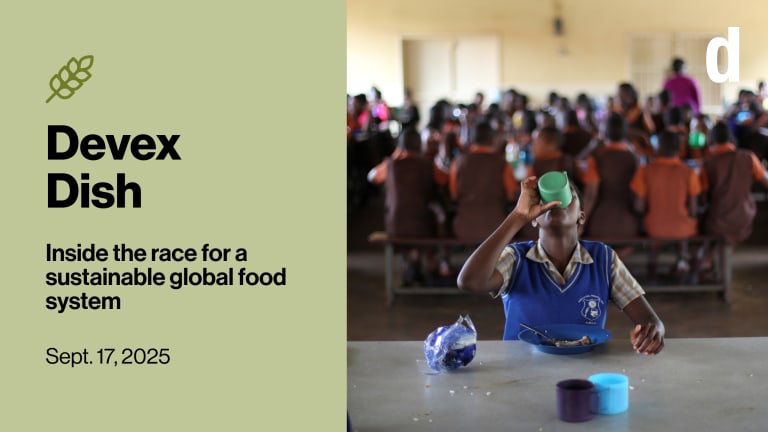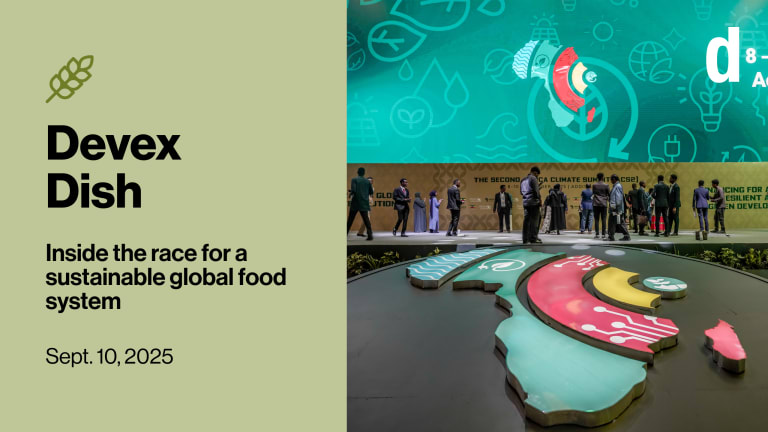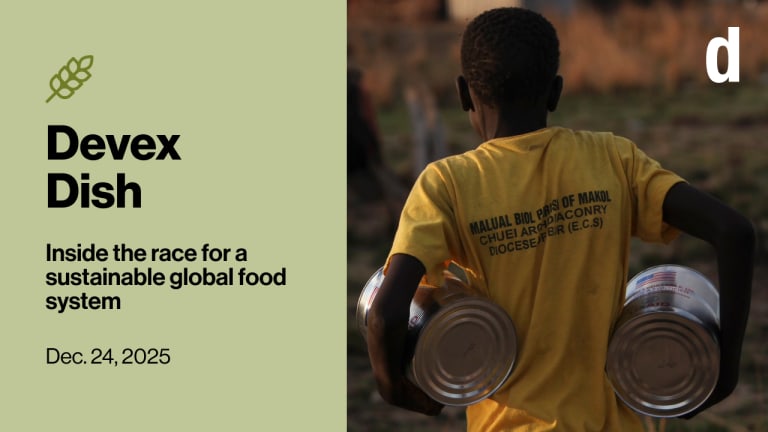Choosing to suspend food aid to a country with millions of starving people isn’t a decision any World Food Programme executive director wants to make. But within her first month at the helm, Cindy McCain was forced to pause WFP food distribution in Ethiopia after reports of wide-scale food diversion. Instead of getting it to people who desperately needed their next meal, Ethiopian officials were allegedly selling sacks of staple foodstuffs on the black market.
An estimated 20 million people in the country need humanitarian assistance.
I discussed the situation in a recent sit-down with McCain, who was just back from a whirlwind trip to Washington.
Printing articles to share with others is a breach of our terms and conditions and copyright policy. Please use the sharing options on the left side of the article. Devex Pro members may share up to 10 articles per month using the Pro share tool ( ).








